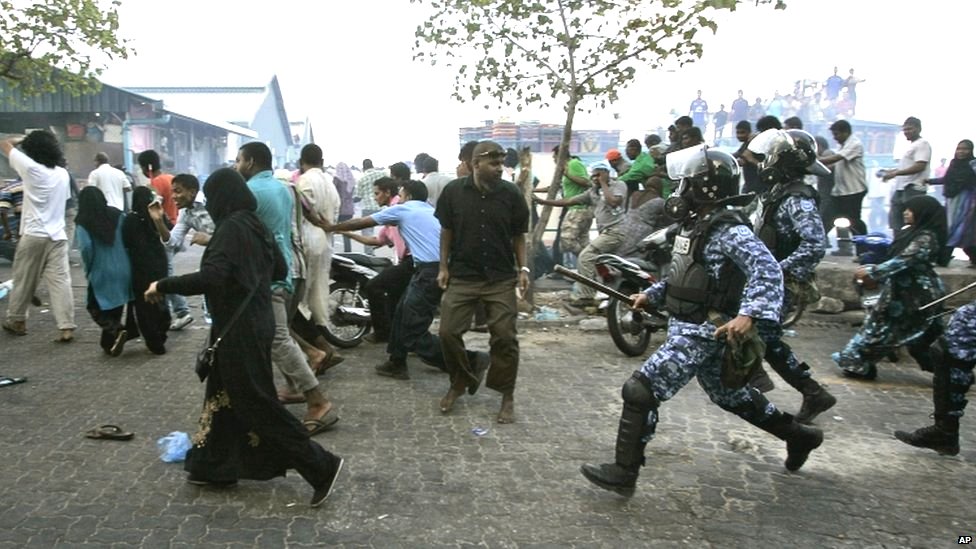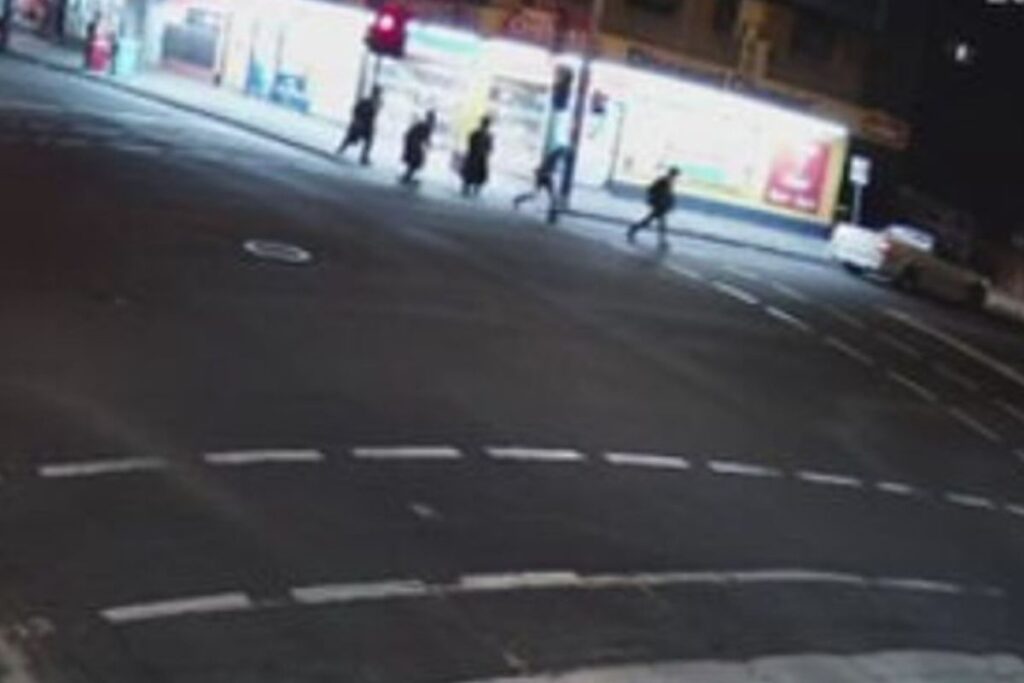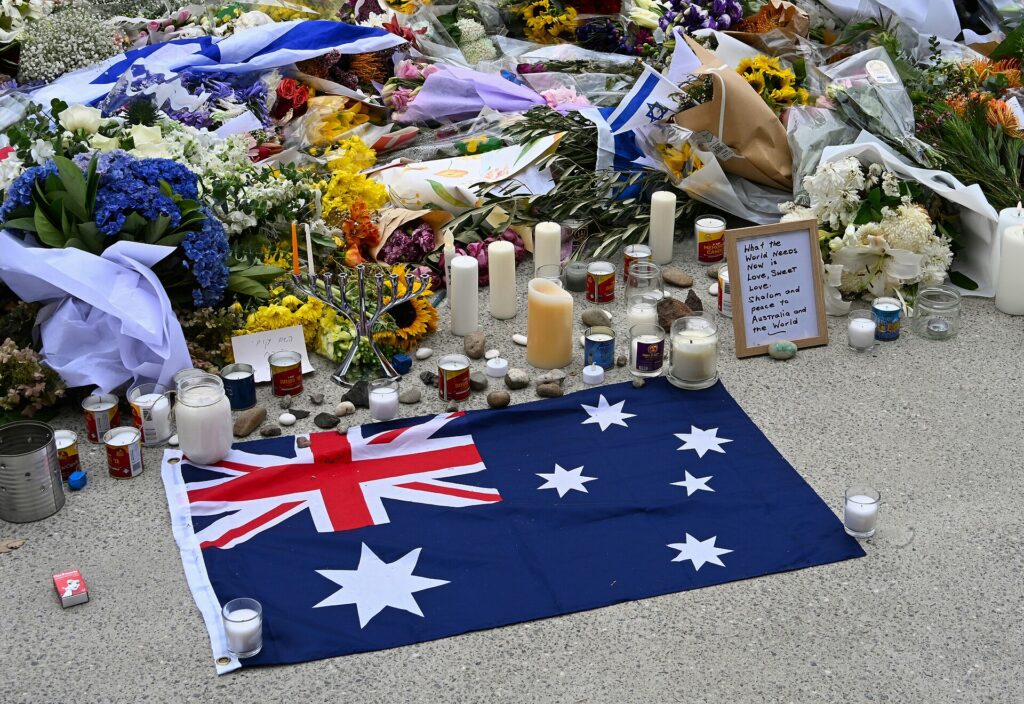UPDATES
Islamism, conspiracy theories tied up in Maldives coup
February 16, 2012 | Tzvi Fleischer

The Maldives is an island paradise in the Indian Ocean with an overwhelmingly Muslim population. Last week, the country experienced a coup, where, reportedly with a gun to his head, the democratically-elected President Mohamed Nasheed resigned, paving the way for his replacement by Vice-President Mohammed Waheed Hassan Manik.
The politics of the coup are complex and unclear, and part of the story appears to be that many of the coup plotters are associated with former President / Dictator Maumoon Abdul Gayoom, who Nasheed succeeded following elections in 2008. However it does seem clear that caught up in the mix is the growing influence of very extreme Salafist Islamist influences and factions in the Maldives. Moreover, these factions have been promoting bizarre anti-Israel conspiracy theories as part of their efforts to undermine Nasheed, despite the fact that Israel has almost nothing to do with the Maldives.
The Wall Street Journal‘s Tom Wright notes of the Maldives:
Hard-line Islam is an increasing part of the political scene and played a role in overthrowing the democratically elected government.
In the weeks leading up to Tuesday’s ouster of President Mohamed Nasheed, his political adversaries fomented opposition among conservative Muslims by claiming Mr. Nasheed’s government was trying to undermine their faith…
Further, Wright notes regarding the new cabinet, “Some of the people Mr. Manik has installed in recent days were instrumental in efforts over the past few weeks to discredit Mr. Nasheed as un-Islamic”
The recently ousted foreign minister Ahmed Naseem is quoted in the article as saying that :
Religious orthodoxy has become the norm as more people go to study in Pakistan and Saudi Arabia. “This country had no one wearing headscarves 10 years ago” but it is common now, he said. The political opposition, he added, capitalized on this growing religiosity by portraying Mr. Nasheed as un-Islamic. “They’re using Islam as a tool.”
An article by Praveen Swami of the Hindu Times tells more of the story of how Salafism imported from Pakistan and the Middle East came to play such a major role in Maldivan society and politics:
Ever since September 2007, when a bomb targeting Chinese, Japanese and British tourists went off in Malé’s Sultan Park, security experts have feared a paradise for jihadists instead of tourists. Its 1,200-plus islands are near-impossible to police, which means terrorists could use them as bases to target India’s western seaboard and even Europe.
In the early 1990s, growing numbers of young Maldivians began to train at seminaries in Pakistan – and once there, found in Salafist neo-fundamentalism a language of protest against President Maumoon Abdul Gayoom’s authoritarianism. Men like Pakistan-trained seminarian Ali Jaleel were at the vanguard of this movement, recruiting students through networks of underground mosques and study circles. The Maldives’ New Islamist movement came to be known as the “Dot Coms”, a reference to the online sources of theological resources. Mr Jaleel’s faction studied the works of Abdullah Azzam, Osama bin-Laden’s mentor and the Lashkar-e-Taiba co-founder.
From 2004, these networks acquired greater legitimacy – and a presence in the far-flung atolls. The Lashkar-e-Taiba’s charitable wing, along with British-based Islamists like Muhammad al-Rifaee, funnelled hundreds of thousands of dollars into tsunami-hit communities – in return for their souls.
The journalist and activist Aishath Velazinee recorded that islanders were encouraged “to emulate the Arabian dress and lifestyles of the time of Prophet Muhammad”. “Men grew their beards and hair, took to wearing loose robes and pyjamas, and crowned their heads with Arab-style head-cloths. Women were wrapped up in black robes. Goats were imported, and fishermen gave up their vocation to become shepherds.”
Ali Rameez, the country’s leading pop-star, embraced Salafism, renounced his music – and, in a surreal gesture, dumped surviving copies of his compact discs into the Indian Ocean.
The Salafist groups have had other effects as well. Last week, on the same day as the coup, presumed Salafists broke into the National Museum in the capital and destroyed all artifacts – including irreplaceable 12th Century Buddhist statues – from an exhibit on the island’s pre-Islamic heritage.
Earlier, Islamists demonstrators forced the government to ban all spas at hotels, arguing they were promoting immoral behaviour, despite the heavy dependence of the Maldivan economy on tourism. They also want to ban alcohol for tourists (it’s already banned for local), but have so far been unsuccessful.
Meanwhile, India is reportedly concerned that the Maldives are becoming a recruting ground for Pakistani terror groups, with one Maldivan having become a suicide bomber in Pakistan in 2009.
In Dec. 2010, I wrote a “Scribblings” column on the paranoid theories about the danger of an Israeli or Jewish takeover widely put forth by Islamist groups in the Maldives in response to the presence there of a group of Israeli eye-doctors providing free treatment to Maldivans in need.
Similar paranoia is on display in news about the coup. The party of the new Home Affairs Minister Mohamed Jameel, one of those who criticised ousted President Mohamed Nasheed for supposedly “working to undermine Islamic law” was reported in the Wall Street Journal as having accused the government of “planning to sell land to Israel.” Another complaint against the government was that it planned to let the Israeli airline El Al land at the airport in the capital Male, with Islamic scholars arguing this “posed a threat to national security” and “fostering relations with Jews was discouraged in Islam.”
Meanwhile, the Maldives is not the only country where anti-Jewish conspiracy theories are playing a role in politics. In Venezuela, where government antisemitism is a serious problem as Daniel Meyerowitz-Katz noted in a blog post here a few weeks ago, the new head of the main opposition party is Henrique Capriles Radonski, a devout Catholic with some Jewish ancestry. And he is under antisemitic attack from pro-government media, labelled with big Stars of David in magazines, while a profile on Venezuelan state radio’s website written by reporter Adal Hernandez, denounced Rodonski as the representative of global “Zionism”, described in the profile in blatantly antisemitic, conspiratorial terms.
Tzvi Fleischer
Tags: Antisemitism





